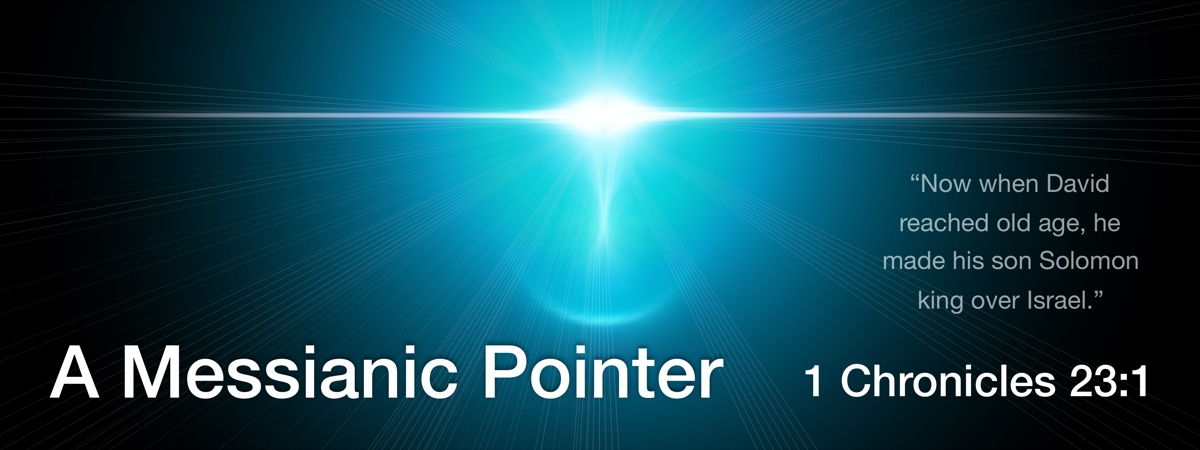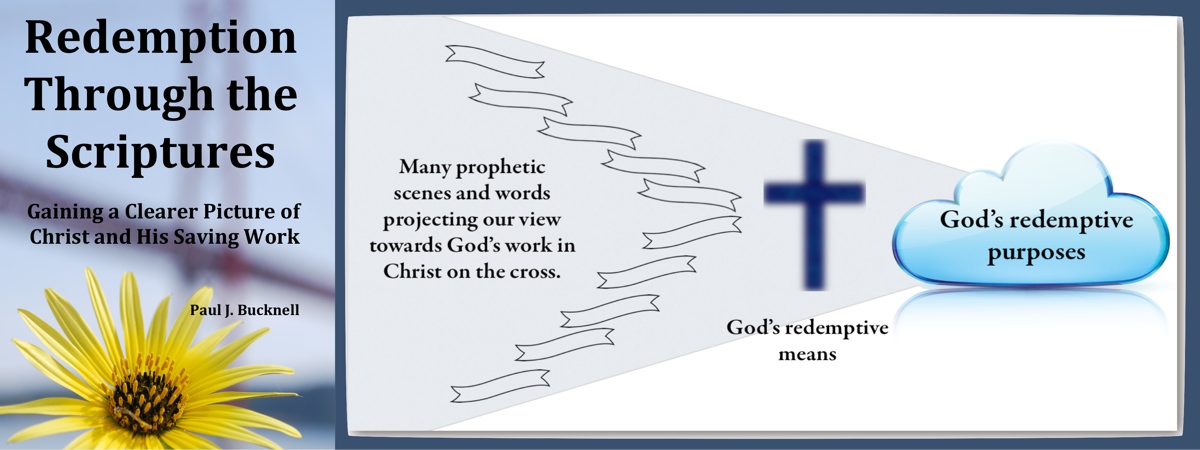
Written by Paul J Bucknell on June, 05, 2019
A Messianic Pointer (1 Chronicles 23:1)
The Bible remains as an intriguing collection of God-inspired words communicating vital knowledge from God (2 Tim 3:15-16). Many verses, acting like transparent crystals, clearly portray the Gospel of Jesus Christ, but other teachings, especially in the Old Testament, present themselves as cryptic puzzles. 1 Chronicles 23:1 is one of these passages, a seemingly plain string of words, but their hidden meaning suggests they are more similar to the birth of a star with a ready-to-burst display of light.
A Historical Understanding
The apparent meaning of this given sentence describes David’s anointing of his son as king over his kingdom.
“Now when David reached old age, he made his son Solomon king over Israel” (1 Chronicles 23:1, NASB).
While David was yet living, he made Solomon, his son, king. We read in a companion passage the reason for it—his other son, Adonijah, attempted to gain the kingship position (1 Kings 1:11). But according to God’s instruction and David’s promise, Bathsheba’s son, Solomon, gained the throne (1 Kings 1:13). We could stop with this historical analysis, but behind these words lies a type of Christ who would come one day. I believe the author’s emphasis of appointing Solomon while David was yet living points to a redemptive truth. I personally do not favor mystical or allegorical interpretations, and I, would not consider my suggestion to be one, however, I can see these words acting as a type of Christ, a Messianic promise.
(Redemption Through the Scriptures and its Study Guide offer a detailed biblical and historical development of the redemptive themes through the Bible.)

A Redemptive Meaning
1 Chronicles 23:1 stresses that David was alive when he appointed his son, Solomon to be king. Typically, the king dies before his successor takes over the throne. But the stress here provides sufficient connection to the Gospel truths in the New Testament which act as glitter fully revealing their glorious implications.
This snapshot of this moment provides a glorious glimpse into the eternal redemptive plan.
The Messianic plot goes much deeper beneath these words. If one carelessly reads, he will discover nothing. But under the surface, a careful student of God’s Word with the aid of the Holy Spirit will see how the truths converge in the New Testament.
At that precise moment, David was king, and so was his son, Solomon. Both stood as rulers. Solomon went from being promised the kingship to being king. The grand Messianic picture is drawn from the fact that David wanted to build the house for the temple, but God was not willing. He appointed one of David’s sons to do this. The father, David, got everything ready, but the son, Solomon, would have to build it.
“But the Lord said to my father David, ‘Because it was in your heart to build a house for My name, you did well that it was in your heart. 19 Nevertheless you shall not build the house, but your son who will be born to you, he will build the house for My name’” (1 Kings 8:18-19; 1 Chr 17:10-12).
We distinctly read of the plan of salvation, the mysteries of the Gospel, all laid out so orderly by the Father, but the Son comes and carries out the plan (Eph 1:3-14). “For the works which the Father has given Me to accomplish—the very works that I do—testify about Me, that the Father has sent Me” (John 5:36). The Holy Spirit then fills the workers of the temple so that the temple is divinely formed by God’s people who are the temple.
At this precise moment, we hold a momentous snapshot of time that gives us a glorious glimpse of the redemptive plan of God. The Father and Son co-exist. They, like David and Solomon, both rule. The Father sent His Son into the world to carry out the redemption plan. (Theologically, the Father and Son coexist forever, but this one earthly scene captured in this verse illustrates that eternal truth.)
Moreover, I tell you that the LORD will build a house for you” (1 Chronicles 17:10).
The Father plans for the temple, but it is Jesus, the Promised Son, who carries out the building plan. Jesus stated He would rebuild the temple in three days. Jesus is the temple, composed of the redeemed saints through time and space.
“Consider Jesus, the Apostle and High Priest of our confession; 2 He was faithful to Him who appointed Him… 4 For every house is built by someone, but the builder of all things is God. 6 but Christ was faithful as a Son over His house—whose house we are.…” (Heb 3:1-6).
So, though the Father made the plans, the Son actually carried out the redemption plan. Jesus died for His people and created the new temple of God, the old temple being a mere shadow of the new one.
“What sign do You show us as your authority for doing these things?” 19 Jesus answered them, “Destroy this temple, and in three days I will raise it up.” 20 The Jews then said, “It took forty-six years to build this temple, and will You raise it up in three days?” 21 But He was speaking of the temple of His body. 22 So when He was raised from the dead, His disciples remembered that He said this; and they believed the Scripture and the word which Jesus had spoken.” (John 2:18-22)
Jesus acknowledged that He would raise the new Temple in three days, amply displaying the power of His life over His death. Jesus knew why He came to earth—to build the new temple on the basis of His sacrifice through which forgiveness of sins could be provided for mankind.
Conclusion
It is fine if you do not see these truths in this one verse, 1 Chronicles 23:1. The redemptive truths are true whether this one verse, like a shadow, hints at the greater reality or not. The author’s emphasis on the co-existing kings, entangling God with David with the sons who would build the temple. The Father does not directly build the Temple but His promised Son, the Lord Jesus Christ through His death on the cross. His one sacrifice along with His resurrection would build that eternal redemptive temple, making Jesus the High Priest through which all must come to be saved but also the coexisting King with the Father as we see in Revelation to whom all praise is due and given.
13 “And every created thing which is in heaven and on the earth and under the earth and on the sea, and all things in them, I heard saying,
“To Him who sits on the throne, and to the Lamb, be blessing and honor and glory and dominion forever and ever.”
14 And the four living creatures kept saying, “Amen.” And the elders fell down and worshiped” (Rev 5:11-14).











